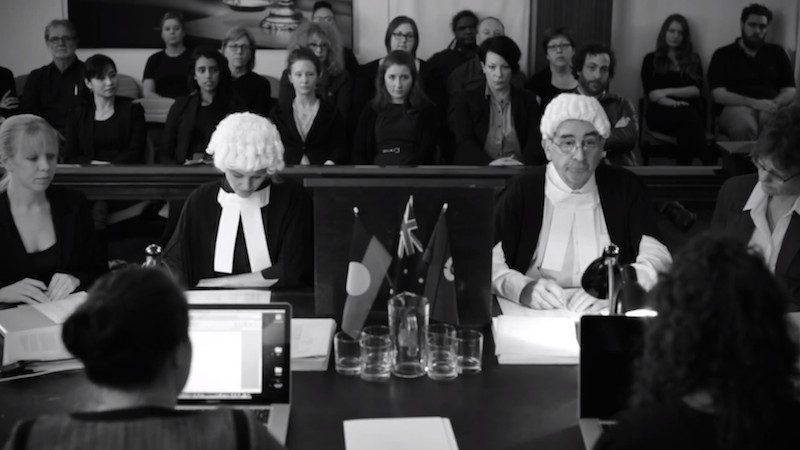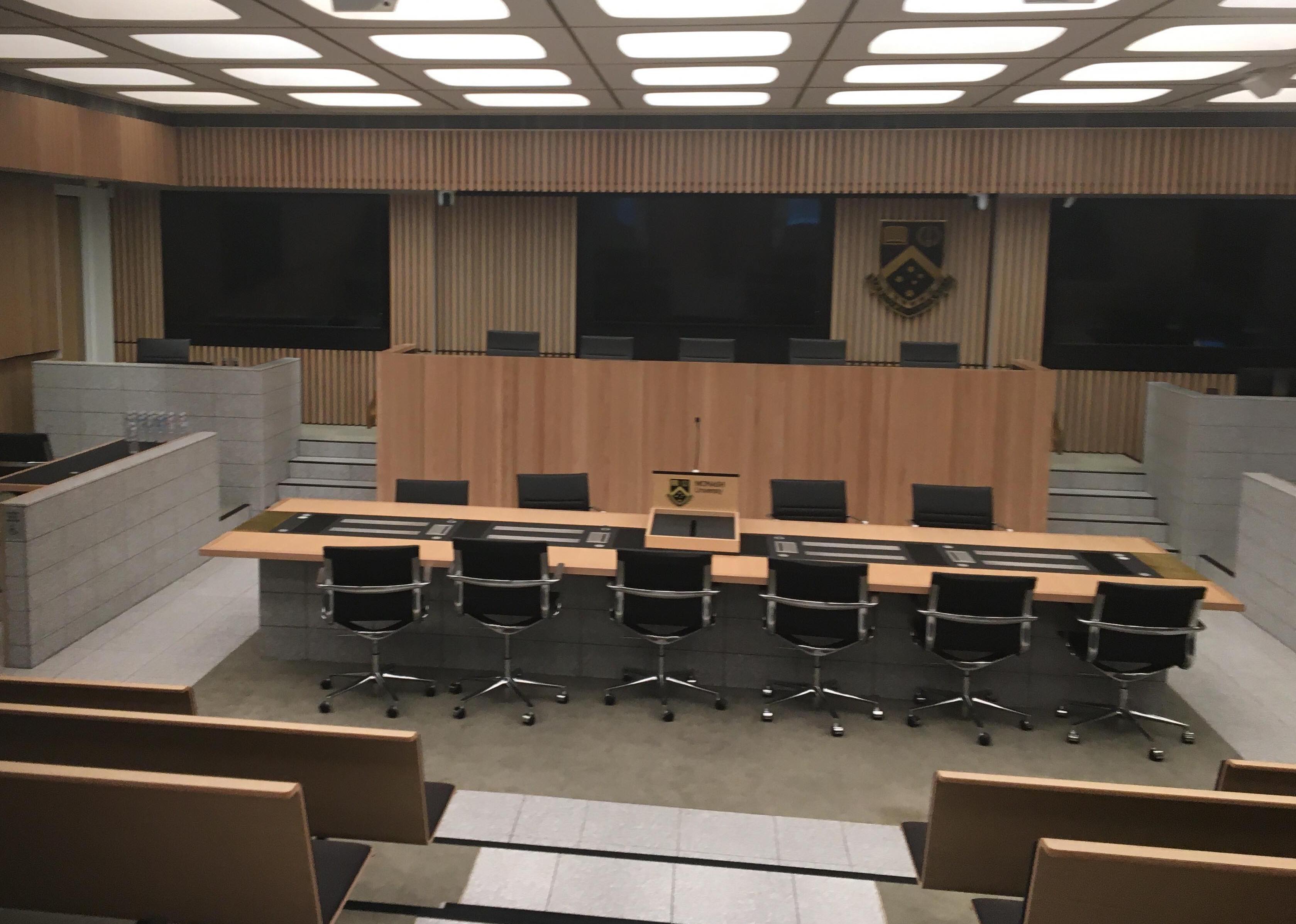I was fifteen when I first encountered something struck me as making absolutely no sense. In a sentencing hearing Old Bailey Judge Sir John Leonard declared of a rape victim that “the trauma suffered by the victim was not so great”. He promptly handed out a longer sentence to one of her attackers for breaking in and stealing from her parent’s home than for raping her. Now, while rape was historically a property crime, committed by one man against another man (with the female victim merely the property involved), as a naïve and idealistic teen I couldn’t understand how something so wildly wrong as giving someone a longer prison term for stealing than for rape was not, in fact, a mistake….
And so began a fascination with gender, and prejudice, and discrimination – all of which seem a little at odds with my recent appointment as the joint UQ and Australian Red Cross Blood Services Chair in Donor Research. While research on blood donor recruitment and retention sometimes overlaps with gender, most people see a bit of a disconnect between the current (!) two aspects of my research program. On one hand, in the context of blood donation, I spend an awful lot of time thinking about those who literally give of themselves to save the lives of others. And on the other – well, I spend my time thinking about how to improve the justice-based outcomes for those who have experienced an absolutely horrendous form of victimisation.
So how do they go together? Well, on a surface level, they largely do not. And, with the benefit of hindsight, choosing to research such different things was probably not the wisest of career moves. According to pretty much every guide to success in academia what I should have done is chosen a research area that would allow me to quickly craft a coherent and persuasive research narrative. That is, a 90 second spiel of what I research and why it is important. If you are savvy when choosing your research area, then this narrative can come easily and can be hugely persuasive. If you focus on one thing or close allies of that one thing, then with enough years of reading, conducting research, and writing about that thing then you become the expert. And if you’ve chosen wisely, you will become sought after for that thing. Careers can be, and have been, built that way.
So why didn’t I do just that? While I would really like to be able to tell you some well thought out reason to do with diffusion of risk (what if someone publishes your key contribution to the literature before you’ve had the chance to write up and submit your paper?), it would be a downright lie. The fact is, I was, and still am, easily distracted. I find all aspects of psychology (and sociology, and economics, and…) fascinating. Well, all things except vision. You can keep that. And so, I read widely, and get inspired by what I read. And from that comes ideas for studies and … so I’m sure you can see how this goes. What that means in practice is my CV might be seen as a bit of a mess. I’ve published papers on whistle blowing, sexism, homophobia, riparian zone management, therapeutic horticulture … and the list continues.
Have I been told that this wasn’t a good strategy? Yes. Did it change what I did? Yes… and no. After the second or third time of being told that it wasn’t clear ‘what I did’ I stepped back to look at what I was doing and how it was perceived. Was it really all that disconnected? While at first glance it might seem that way, there is a connection. And so ‘the problem’ with my research was not so much in terms of what I did, but how I communicated my approach. Everything that I do research wise is unified by the (social) psychology theories that underpin my approach. As Kurt Lewin wrote many years ago “there is nothing so practical as a good theory” and with all of my research this is always the starting point. For every problem we encounter and want to know more about why it happens, or how we can intervene to either make it stop or happen more often, theory is the starting place. Theories provide the roadmap of how to understand and change what is going on. While theories (like all maps) are not perfect, their repeated use in different contexts allows us to refine those theories to make them more useful in our quest to understand and change human behaviour. In practice, this means that the theories that inform my practice when considering criminal justice outcomes for victims of sexual assault also impact my work with blood donors. Having an eclectic toolbox of theories is immensely useful. You never quite know when one theory that you’ve worked with in one context may come to be useful in another.
There is also a slightly more selfish reason for my focus on such seemingly disparate research topics. I am passionate about gender, issues of gender equality, and working towards ensuring justice for victims of (sexual) violence. However, the reality is that these all remain depressing areas to research in. As much as you hope change is occurring, the news is often not good. In Australia, women are still killed by persons known to them at the rate of one a week, sexual assault victims are still not believed and as a result justice rarely occurs. And women who are publicly ‘vocal’ about fighting for change in this space are often threatened and abused for their work. The lack of progress can be disheartening, and the viciousness of exchange intimidating. The small gains you get in understanding a bit more of the complex puzzle are often overwhelmed by the sheer enormity of what still needs to be achieved. The challenges are not any less when looking at donor behaviour, but the behaviour is almost the polar opposite. Logically, being a blood donor doesn’t have much going for it. It requires a commitment of time, potentially some financial cost to get to a location where you can make the donation, and the possibility of pain or some other adverse event. And for all of this you get nothing. Well nothing, aside from some cordial, a biscuit, and a good feeling. But yet, each and every year, half a million Australians roll up their sleeve to donate. And many of them do it multiple times each year. Blood donors are quite simply amazing and wholly fascinating people. So for me, having a diversity of research passions has been as much about self-preservation as about anything else.
So what words of advice can I offer about developing your research area(s)? Well, not many really. There isn’t a magic formula that can be prescribed. For some, sticking closely to one topic works perfectly well for them – they sustain their passion, develop their expertise, and advance theory and practice in that space. For others – myself included – having a diversity of interests ensures that I can maintain my enthusiasm for what I do and I can remain functioning effectively in the spaces that I choose to research in. That is, I avoid burning-out. It has, perhaps, taken me longer than it should have to work out that this approach to research is okay, and that there isn’t just one way to be an effective researcher or academic. So, learn from my experience, and take the time to work out how you want to carve your program of research in a way that functions effectively for you. It might take a while to identify the coherence in your approach, but undoubtedly, there will be one. While this clearly sounds like a case of ‘do as I say, and not as I have done’ being a little more mindful of how your research interests are connected will likely bring benefit. Not only do you get to continue researching the theories or issues or problems that really engage and excite you, but you also have your 90 second answer at the ready next time someone asks “so what is it that you actually do?”



